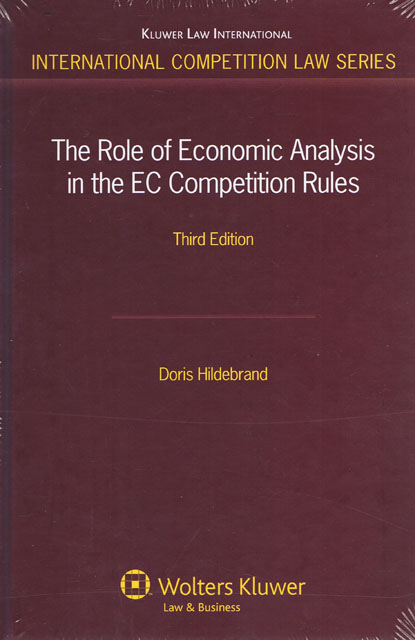
The thesis of this now-classic work – that the European Commission and the Community Courts, under the necessity of forging an effective competition policy, created an entire new school of thought in economic theory that permeates the disciplinary boundary between law and economics – has been gaining ground among competition law practitioners and their government counterparts over the last decade.
Now, in the book’s third edition, the author explores the full spectrum of this development in detail, uncovering its multiple rationales as it has gradually formulated the legal principles of ‘competition economics’ that have come to underlie all matters related to Article 81 (1), Article 81 (3), Article 82, the Merger Regulation, and the State Aid provisions.
Although clearly written for a legal audience, the book is interdisciplinary, integrating both law and economics in such a way that economics in competition proceedings becomes easier to understand for people not trained in economic theory. It offers an in-depth description of ‘European School’ theories and applications, particularly with respect to vertical and horizontal agreements and collective dominance. In addition, the book provides solid guidance on the definition of the relevant antitrust markets, with a detailed description of the appropriate methodology, the hypothetical monopolist test.
Among the fundamental elements discussed are the following:-